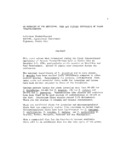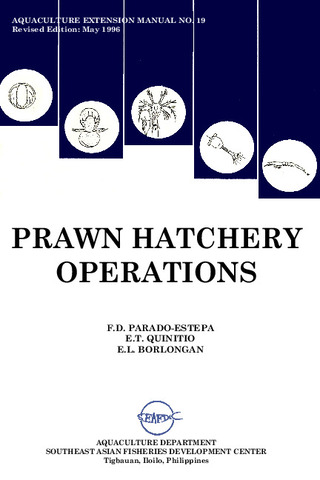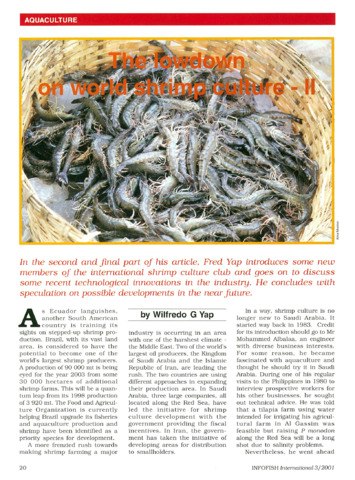Evidence of WSSV transmission from the rotifer (Brachionus plicatilis) to the black tiger shrimp (Penaeus monodon) postlarvae and means to control rotifer resting eggs using industrial disinfectants
- Global styles
- MLA
- Vancouver
- Elsevier - Harvard
- APA
- Help

Download URL
www.bioflux.com.roDate
2012Author
Page views
867ASFA keyword
AGROVOC keyword
Taxonomic term
Metadata
Show full item record
Share
Abstract
Rotifers are considered possible vectors of the white spot syndrome virus (WSSV) and have been implicated in its recurrence in pond-cultured shrimp. However, direct evidence of the transmission and the pathogenicity of this virus from rotifers to shrimp has been lacking. In the present study, the pathogenicity of WSSV transmitted from infected rotifers (Brachionus plicatilis) to post larval black tiger shrimp (Penaeus monodon) was investigated. Results show that WSSV transmitted from infected rotifers to post-larval P. monodon caused an 82% cumulative mortality as compared to a 9% mortality in the non-infected control group. We also investigated the possibility of industrial disinfectants (sodium hypochlorite, granulated calcium hypochlorite and formalin) as possible means to inhibit the viability of rotifer resting eggs, considered a biological reservoir of WSSV in earthen ponds. Among the disinfectants that were tested, granulated calcium hypochlorite at 5 mg/L was the most effective. The present study provides direct evidence of the high pathogenicity of WSSV transmitted from rotifers to post larval P. monodon and shows the potential use of granulated calcium hypochlorite in pond disinfection. This treatment could be a promising strategy to inhibit the spread and recurrence of WSSV outbreaks in P. monodon culture.
Suggested Citation
Corre, V., Jr., Faisan, J. P., Jr., Carton-Kawagoshi, R. J., Elle, B. J., Traifalgar, R. F., & Caipang, C. M. (2012). Evidence of WSSV transmission from the rotifer (Brachionus plicatilis) to the black tiger shrimp (Penaeus monodon) postlarvae and means to control rotifer resting eggs using industrial disinfectants. Aquaculture, Aquarium, Conservation and Legislation , 5(2), 64-68. http://hdl.handle.net/10862/2947
Type
ArticleISSN
1844-8143; 1844-9166Collections
- Journal Articles [1262]
Related items
Showing items related by title, author, creator and subject.
-
An overview of the nutrition, feed and feeding techniques of prawn penaeid/shrimps
Piedad-Pascual, Felicitas (Philippine Council for Aquatic and Marine Research and Development, 1989)This paper echoes what transpired during the first International Conference of Penaeid Prawns/Shrimps held in Iloilo City in December 4-7, 1984, particularly on the Nutrition nd Feed Development. Around 25 papers were ... -
Series: Aquaculture extension manual; No. 19
Prawn hatchery operations
Parado-Estepa, Fe D.; Quinitio, Emilia T. ; Borlongan, Emeterio L. (Aquaculture Department, Southeast Asian Fisheries Development Center, 1996-05)
The manual, an updated version of the 1984 SEAFDEC/AQD manual, presents the underlying principles and step-by-step instructions of prawn larval and post-larval rearing. The techniques described are not only applicable to ...
; Borlongan, Emeterio L. (Aquaculture Department, Southeast Asian Fisheries Development Center, 1996-05)
The manual, an updated version of the 1984 SEAFDEC/AQD manual, presents the underlying principles and step-by-step instructions of prawn larval and post-larval rearing. The techniques described are not only applicable to ... -
The lowdown on world shrimp culture - II
Yap, Wilfredo G. (INFOFISH, 2001)This paper introduces some new members of the international shrimp culture club and goes on to discuss some recent technological innovations in the industry, particularly the polyculture of tilapia (mainly Oreochromis ...





